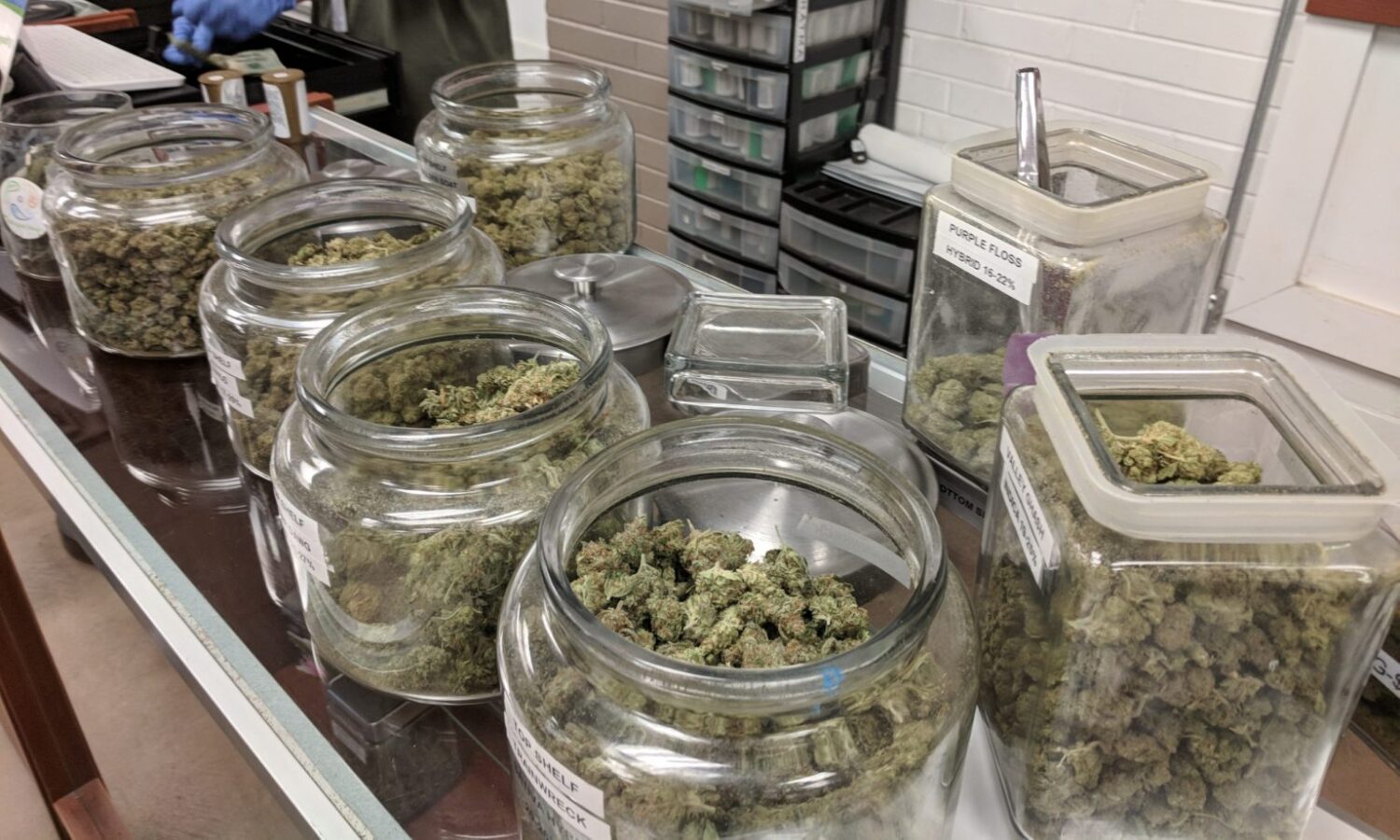Another federally funded study is suggesting that marijuana legalization may be linked to a “substitution effect,” with young adults in California “significantly” reducing their use of alcohol and cigarettes after the cannabis reform was enacted.
What’s more, the research appeared to contradict prohibitionist arguments about the potential impact of legalization, as the data also revealed no significant increase in marijuana use among young adults who were still not of age to access retail dispensaries—though there were interesting changes in certain modes of consuming cannabis following the policy change.
The study, published in the Journal of Psychoactive Drugs last week, involved surveys of people aged 18-20 living in Los Angeles before and after the state implemented adult-use marijuana legalization under a 2016 voter initiative. One cohort of 172 pre-legalization subjects were interviewed between 2014 and 2015, and the other 139 post-legalization subjects were surveyed between 2019 and 2020.
Researchers said that, “despite the possibilities of increased access to cannabis via diversion from the adult use market and increased normalization of cannabis use,” legalizing recreational marijuana “did not lead to increased frequency of cannabis use” among the subjects. They did notice a shift toward the use of edibles post- adult-use legalization (AUL), however.
“Regarding other licit substance use, we observed significantly fewer days of alcohol and cigarette use among the [post-legalization] cohort compared to the [pre-legalization] cohort,” the study says. This suggests the “possibility of a protective effect offered by cannabis, including edibles, or potentially ongoing changes in norms and attitudes toward these substances within this socio-historical context.”
“Lower frequency of alcohol and tobacco use coupled with increase in edibles use post-AUL may suggest a substitution effect, which could result from increasing access to cannabis through a medical cannabis recommendation or diversion of cannabis from medical or adult use cannabis dispensaries,” the researchers said.
The study, which was funded by the National Institute on Drug Abuse, also found that changes in the use of illicit and prescription drugs “did not significantly differ” between pre-legalization and post-legalization cohorts, which the researchers said is “notable since some critics predicted that AUL would lead to increased other drug use” via the so-called “gateway theory.”
“Future studies should monitor whether stable rates of cannabis use and declines in alcohol and cigarette use will be sustained as some participants reach legal age to access these substances for adult use, and how these trends continue or alter as participants enter later emerging adulthood,” the study concludes.
While one of the limitations of the study is the fact that people under 21 cannot legally purchase alcohol or tobacco, the findings regarding a possible substitution effect have been echoed in numerous studies covering different jurisdictions across the country, at least when it comes to other substances such as opioids.
For example, legalizing medical marijuana is associated with a “lower frequency” of nonprescribed pharmaceutical opioid use, according to a study published this month in the International Journal of Mental Health and Addiction.
In August, a federally funded study found that marijuana was significantly associated with reduced opioid cravings for people using them without a prescription, suggesting that expanding access to legal cannabis could provide more people with a safer substitute.
A separate study published last month found that legal access to CBD products led to significant reductions in opioid prescriptions, with state-level drops of between 6.6 percent and 8.1 percent fewer prescriptions.
A report from this summer, meanwhile, linked medical marijuana use to lower pain levels and reduced dependence on opioids and other prescription medications. Another, published by the American Medical Association (AMA) in February, found that chronic pain patients who received medical marijuana for longer than a month saw significant reductions in prescribed opioids. (Full Story)

